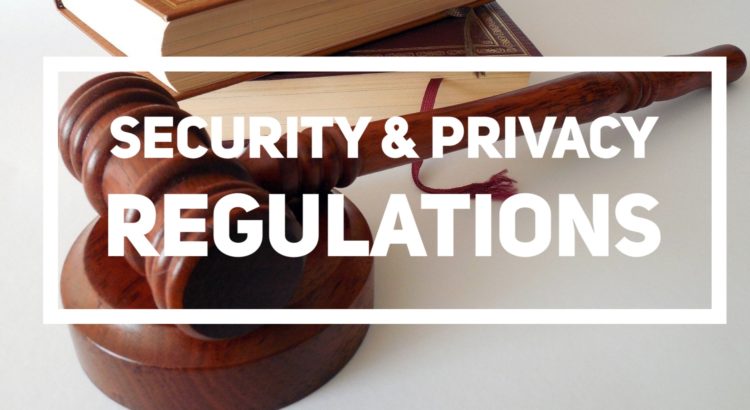Last month the SNIA Networking Storage Forum continued its Storage Networking Security Webcast series with a presentation on Security & Privacy Regulations. We were fortunate to have security experts, Thomas Rivera and Eric Hibbard, explain the current state of regulations related to data protection and data privacy. If you missed it, it’s available on-demand.
Q. Do you see the US working towards a national policy around privacy or is it going to stay state-specified?
A. This probably will not happen anytime soon due to political reasons. Having a national policy on privacy is not necessarily a good thing, depending on your state. Such a policy would likely have a preemption clause and could be used to diminish requirements from states like CA and MA.
Q. Can you quickly summarize the IoT law? Does it force IoT manufactures to continually support IoT devices (ie. security patches) through its lifetime?
A. The California IoT law is vague, in that it states that devices are to be equipped with “reasonable” security feature(s) that are all of the following:
- Appropriate to the nature and function of the device
- Appropriate to the information it may collect, contain, or transmit
- Designed to protect the device and any information contained therein from unauthorized access, destruction, use, modification, or disclosure
This is sufficiently vague that it may be left to lawyers to determine whether requirements have been met. It is also important to remember IoT is a nickname because the law applies to all “Connected devices” (i.e., any device, or other physical object that is capable of connecting to the Internet, directly or indirectly, and that is assigned an Internet Protocol address or Bluetooth address). It also states that if a connected device is equipped with a means for authentication outside a LAN, either a preprogrammed password that is unique to each device manufactured or a security feature that requires a user to generate a new means of authentication before access is granted to the device for the first time is required.
Q. You didn’t mention Brexit – to date the plan is to follow GDPR but it may change, any thoughts?
A. British and European Union courts recognize a fundamental right to data privacy under Article 8 of the binding November 1950, European Convention on Human Rights (ECHR). In addition, Britain had to implement GDPR as a member nation. Post-Brexit, the UK will not have to continue implementing GDPR as the other member countries in the EU. However, Britain will be subject to EU data transfer approval as a “third country” like the US. Speculation has been that Britain would attempt a “Privacy Shield” agreement modeled after the arrangement between the United States and the European Union. With the recent Court of Justice of the European Union issuance of a judgment declaring as “invalid” the European Commission’s Decision (EU) 2016/1250 of 12 July 2016 on the adequacy of the protection provided by the EU-U.S. Privacy Shield (i.e., the EU-U.S. Privacy Shield Framework is no longer a valid mechanism to comply with EU data protection requirements when transferring personal data from the European Union to the United States), such an approach is now unlikely. It is not clear what Britain will do at this point and, as with many elements of Brexit, Britain could find itself digitally isolated from the EU if data privacy is not handled as part of the separation agreement.
Q. In thinking of privacy – what are your thoughts on encryption being challenged? By EARN IT act/LAED act, etc. It seems like that is going against a nation-wide privacy movement, if there is one.
A. The US Government (and many others) have a love/hate relationship with encryption. They want everyone to use it to protect sensitive assets, unless you are a criminal and then they want you to do everything in the clear so they don’t have to work too hard to catch and prosecute you…or simply persecute you. The back-door argument is amusing because most governments don’t have the ability to prevent something like this from being exploited by attackers (non-Government types). If the US Government can’t secure its own personnel records, which potentially exposes every civil servant along with his/her families and colleagues to attacks, how could they protect something as important as a back-door?
If you want to learn more about encryption, watch the Encryption 101 webcast we did as part of this series.
